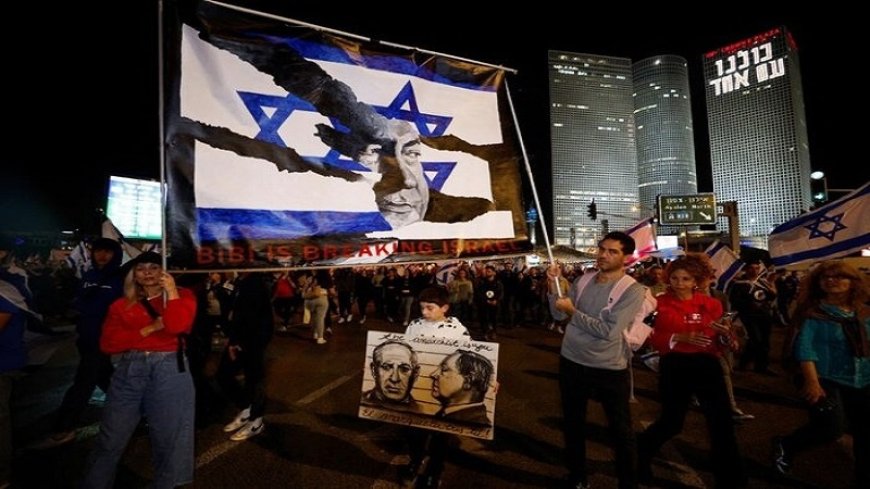According to reports from Yediot Ahronot, Saturday evening's demonstration marked a significant escalation in public dissent against Netanyahu's government, amidst ongoing conflict and unresolved issues stemming from the 260-day war with Gaza. Protesters across occupied Palestine demanded early elections and the dissolution of Netanyahu's cabinet. Organizers also called for a national strike in the coming week to further pressure the government.
In a widespread show of discontent, demonstrations occurred in 70 locations throughout occupied Palestine, with a notable gathering of around two thousand people near Netanyahu's residence. Benny Gantz, leader of the centrist State Camp party and former member of the Israeli military cabinet, joined demonstrators in the Kerami Jat area, underscoring the breadth of opposition.
Israeli media outlet Channel 12 reported clashes between police and protesters outside the Likud party headquarters in Tel Aviv, highlighting the intensity of the demonstrations.
The protest also saw participation from families of Israeli prisoners held by Hamas, who challenged Netanyahu's assertions of victory over the militant group. They questioned how Hamas could be deemed defeated when Israeli prisoners remained in captivity.
The discontent reflects broader frustrations with Netanyahu's leadership amidst internal strife and ongoing geopolitical challenges. The protests underscore a growing call for political change and accountability within Israeli society, amid concerns over security, governance, and the country's future direction.
As tensions persist, observers anticipate continued political turbulence in Israel, with implications for regional stability and international relations.














































